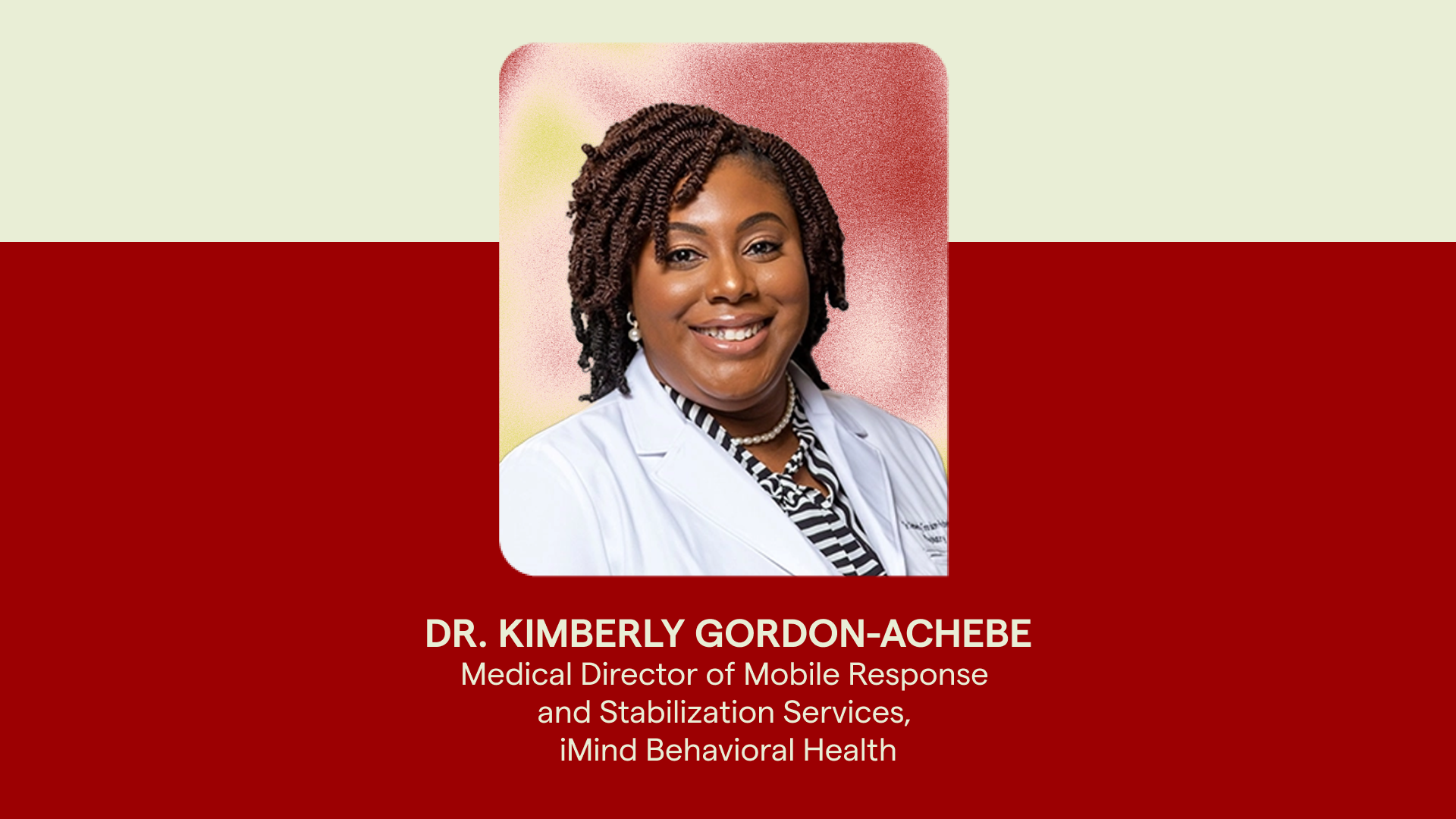
As the field of mental health continues to develop, there’s a growing global focus driving the industry towards more evidence-based practices, with consistently collected patient reported outcome measures (PROM’s) at the core of the momentum. But there’s a particular area that’s gaining more traction as it recognizes the glaring need for highly effective youth mental health interventions: school mental health.
What is School Mental Health?
School mental health has only become its own distinct field over the last decade. This is largely in response to the unique challenges and opportunities that present themselves within the school-based setting. Researchers and practitioners involved are interested in developing programs and services that enhance mental health education, support stigma reduction, increase access to mental health services and early interventions for children and youth, and improve the breadth and quality of school-based treatment that meets students where they are. This movement is vital to the mental wellness of school-aged children, but there is still a lack of broad consensus and cohesion across North America when it comes to the approach to implementing the evidenced-based practices necessary to support the diverse communities, youth, and challenges present in school settings.
It is promising to see that researchers, school boards, service organizations and governments across North America are working towards a shared goal of improving the wellbeing of our youth. For example, Maryland, Illinois, and California have each allocated hundreds of millions in new funding to innovative initiatives that better support the mental health of children and adolescents. Earlier this year, youth mental health experts gathered in British Columbia, Canada, to brainstorm strategies for planning, implementing, and evaluating mental health services in schools throughout North America.
One major element that all of these initiatives have in common is the inclusion of Measurement-Based Care as a foundational component of the solutions for school-based settings— a trend that is rapidly gaining traction in both Canada and the US.
But, why has MBC in schools become such an important topic and what are the benefits of its implementation?
Measurement-Based Care in Schools: Setting the Standard for Support
The benefits of Measurement-Based Care are numerous and well-researched. We frequently share outcome data which shows that MBC contributes to a 42% higher overall improvement in clinical symptoms, a 3.5x higher likelihood that a client experiences reliable change, and 40% lower dropout or cancellation rates. Families often face barriers to accessing traditional clinic or hospital-based care, so schools can often be the sole or primary setting in which children and adolescents are able to receive mental healthcare. In fact, 45-80% of children and youth who seek out mental health treatment, do so at school (Burns et al., 1995; Green et al., 2013). The goal in implementing MBC in schools is to better support the well-being of children and youth as they move through the school system. We can do so by ensuring that all available supports and resources are responsive to the individual needs of each student and that we have a strong understanding of the overall effectiveness of care. In doing so, school boards are empowered to identify services gaps and ensure mental health resource investments best support the needs of their students. Here’s a brief look at a few of the positive ways Measurement-Based Care impacts mental healthcare in the school setting:
1. Objective Assessment: MBC allows educators and school counsellors to collect and leverage objective data about a student’s mental and emotional well-being. This data offers a clear picture of the challenges each student is facing and the progress they are, or are not, making in treatment while also helping identify challenges that may otherwise go unnoticed. This helps providers tailor treatment to each student’s unique needs, while generating aggregate data and learnings that provide insight to inform future programming and resource allocation. An objective understanding of a students wellness is also critical for effective triage to ensure students access the most appropriate care for their needs, allowing schools to direct youth to self-guided service options or to long-term counselling, community or hospital-based programs as needed, depending on the severity of their challenges.
2. Early Identification: Primary to secondary school is a pivotal stage of growth and learning for young people. MBC helps with early identification of students who are at risk of developing severe mental health challenges and would benefit from more intensive care. Early identification allows for timely intervention, where students can access appropriate services and avoid the deterioration of their mental health prior to finding the support they need.
3. Resilience & Self-Understanding: By engaging children and youth in their mental health early on and using regular assessment throughout, you give them the tools to really understand themselves as they progress through life. Not only can they learn to monitor their ups and downs, identify the potential causes, and communicate what they’re experiencing— they can build valuable coping mechanisms that can carry them throughout their lives.
4. Improved Communication: MBC helps build a shared language between counsellors and students, school staff, parents, and healthcare providers. It promotes collaboration and ensures that everyone involved in a student’s care is on the same page, understands student needs, and is working towards the ultimate goal of improving their well-being. Dr. Amber Childs, licensed clinical psychologist specializing in youth and adolescent services and member of the Yale Measurement-Based Care Collaborative, shares the value that data brings to conversations with youth in care, as you can guarantee that their voice will be centered in the process.
5. Enhanced Outcomes: The evidence is clear that MBC leads to improved mental health outcomes. Students who receive care that includes the regular completion of Patient Reported Outcome Measures (PROM’s)— where results are leveraged to guide session discussions and inform treatment approaches— have better outcomes and are more likely to experience positive symptom reduction and long term improvement.
6. Data-Driven Decision-Making: MBC provides a data-driven foundation for decision-making for educational institutions, districts, and governments. Educators and counsellors can leverage their data to better understand the effectiveness of interventions and inform adjustments to treatment approach and service offerings. On a broader scale, schools and districts are able to gather aggregate data to highlight resource gaps and generate objective learnings that inform subsequent service improvements and resource allocation. In our most recent webinar with Dr. David Clark, Professor and Chair of Experimental Psychology at the University of Oxford, Clinical Informatics Advisor at NHS Talking Therapies (formerly known as IAPT), he shared how the data and insights they drew from MBC helped guide important program innovations, resulting in improved outcomes across their population.
Measurement-Based Care in Action: Key Leaders Driving School-Based Innovation and Improvement
It’s promising to see school boards across North America embracing the practice of MBC to drastically enhance outcomes of school-based mental health services. There are a few key leaders highlighted below that are driving this movement forward, with the goal of leveraging MBC to transform the way that mental health services are delivered and better equip students with the tools to maintain and improve their wellbeing, so they can be best positioned to learn and thrive.
The Ontario Government
Earlier this year, the Ontario Ministry of Education and Health released Memorandum 169, which outlines a list of new requirements for school boards and authorities. Each of the 11 items are designed to bring the province closer to a school-based mental health system that is culturally responsive, respectful of diverse needs, evidence-based, data-driven, and prioritizes prevention and early intervention. It also works to centre school-based mental health programming within its provincial network of care, in order to create clear pathways to other community and hospital-based services when more acute care is needed.
There are two items worth highlighting that are key to driving this movement forward:
1. Multi-Tiered System of Supports – This structure of support drives improved coordination and quality of care across all services supporting and impacting youth mental health. By offering a multi-tiered continuum of services that are all connected to one another, ranging from mental health promotion and early identification to defined service pathways and clinical support, they can ensure no students in need of support struggle to access the resources and supports they need.

2. Consistent Use of Evidence-informed Brief Interventions and Standardized Measurement – The requirement for evidence-based interventions and standardized measurement (i.e. Measurement-Based Care) will have massive implications on their ability to meaningfully support Ontario students. Not only can schools ensure they’re meeting the unique and evolving needs of students, the aggregate outcome-data collected will help schools ensure they’re investing resources where most needed to address the mental health needs of all students.
School Mental Health Ontario
School Mental Health Ontario (SMHO) is Ontario’s Ministry of Education’s implementation partner for student mental health, responsible for providing evidence-informed mental health services implementation support to school districts across the province of Ontario, Canada. With evidence-based strategies and services at the core of their work, they are helping to drive improved care and resources, alongside the Ministry of Education, for both English and French school districts.
In order to do so most effectively, they’ve set the foundation for service delivery through a multi-tiered system of support and a detailed guide for schools to improve processes, roles, service coordination, and the quality of available services. Importantly, SMHO highlights ‘evidence and monitoring’ as a foundational component for “effective, scalable, and sustainable school mental health practice.” Their reasoning for this mandate is clear and relies heavily on the well-researched benefits of Measurement-Based Care:
“Sound implementation and outcome indicators, and measurement tools that inform needs and monitor uptake and effectiveness, are essential for making decisions in supporting student mental health. Continuous quality improvement cycles with progress monitoring help in understanding the success of implementation, of both outcome and process indicators.”
We’re excited to be supporting 22 school boards across the province of Ontario, as they follow SMHO recommendations to implement Measurement-Based Care and enhance the care they’re able to deliver to their students.
The State of Maryland
The Maryland Consortium on Coordinated Community Supports recently announced a request for proposal (RFP) to expand access to high-quality behavioral health and wraparound services for students and their families, across the state of Maryland. The RFP includes $120 million in funding to help accomplish the following goals:
- Expand access to high-quality behavioral health and related services for students and families
- Improve student wellbeing and readiness to learn
- Foster positive classroom environments
- Promote sustainability through revenues from Medicaid, commercial insurance, hospital community benefits, and other sources
Importantly, the RFP requires effective measurement be at the core of any proposal, strongly encouraging the implementation of MBC to ensure that awarded provider(s) have the “ability to demonstrate measurable outcomes” including data management, outcomes reporting, and leveraging validated assessment tools to demonstrate impact and monitor engagement. We’re also supporting the implementation of MBC across 7 different school boards and service organizations that support student mental health throughout the state.
The State of Illinois
Governor JB Pritzker and the Illinois Department of Public Health (IDPH) recently shared that they are accepting grant applications for a share of $10 million in federal funding from schools and agencies that are actively supporting child and adolescent mental health. While evidence-based care is not explicit in the application, it provides schools and agencies who are already offering MBC (or those looking to implement) an opportunity to have the costs associated with technology, training, and staff funded to ensure services offered are as impactful as possible for students across Illinois.
The State of California
In the last 5 or so years, the state of California has undertaken a massive overhaul of their entire mental health system, including a dedicated focus on child, youth, and adolescent mental health. In addition to DHCS’ commitment to distribute $429 million in grants to organizations seeking to scale evidence-based behavioral health services for this population, the Children and Youth Behavioral Health Initiative (CYBHI) is primarily focused on improving access to high-quality, data-informed and evidence-based support services in school-based settings. As California continues to move the entire state towards data-driven and high-quality care, they’re establishing themselves as leaders in youth-focused behavioral health initiatives.
Our Partners across North America
Greenspace has seen the direct impact that an effective implementation of Measurement-Based Care can have in school-based settings. We’re currently partnered with 22 school boards in Ontario, 2 in the US, and many other school-based service organizations across North America that offer mental health programs and interventions directly to students.
Implementing Measurement-Based Care in School-Based Settings: The Greenspace 4 C’s
Greenspace’s Chief Growth Officer, Jesse Hayman, shares the Greenspace 4 C’s of MBC, which outline the foundational components of any successful implementation.
Final Thoughts
The momentum for Measurement-Based Care in school-based settings is quickly gaining traction, as governments and districts continually recognize it as being a foundational component of high-quality, evidence-based care. This movement is growing alongside a spike in mental health challenges for children & youth, which necessitates the continued proliferation of MBC in school-based settings. There are many leaders within this movement who are driving MBC forward to improve their ability to inform program enhancements and understand the overall impact of their services on student wellness. We’re thrilled to be able to support many of these leaders and look forward to seeing the future of MBC in school-based settings, where every child is empowered with the knowledge and tools they need to thrive as they move through adolescence and into adulthood.
To learn more about Measurement-Based Care in school-based settings or to explore how Greenspace is supporting our partners to enhance student mental health, book a call with one of our implementation experts or reach out anytime at info@greenspacehealth.com.




















